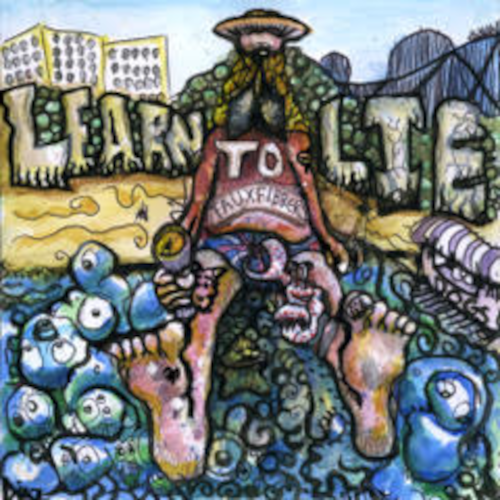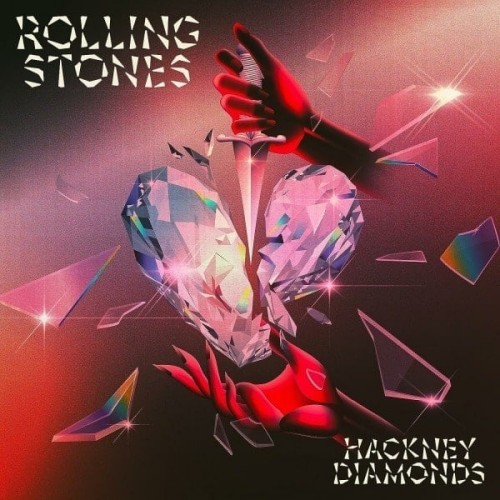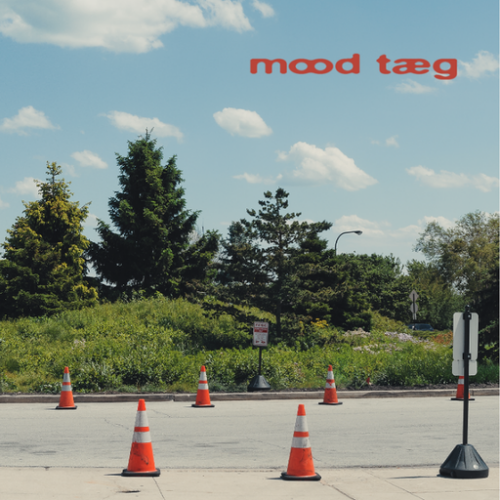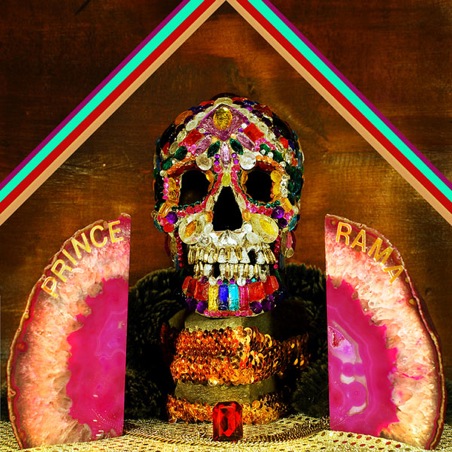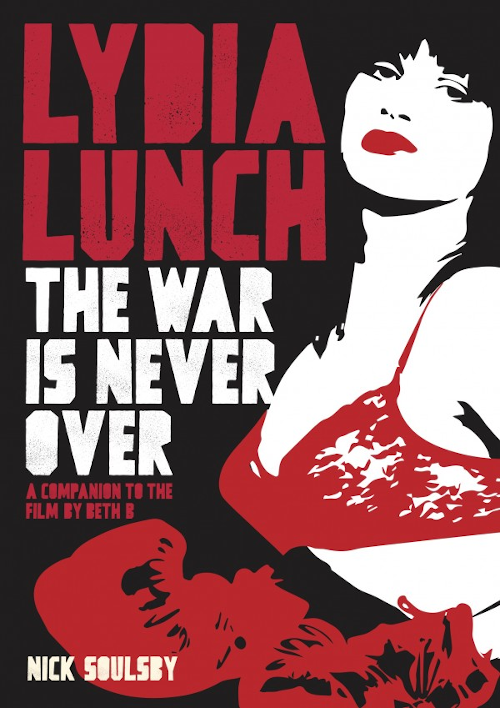 Attitudes to women were awful in the 1970s — pretty much like most of history preceding it, a whole half of humanity shoved into a subservient background, even worse seen as “playthings” to be used and abused.
Attitudes to women were awful in the 1970s — pretty much like most of history preceding it, a whole half of humanity shoved into a subservient background, even worse seen as “playthings” to be used and abused.
The early chapters of Nick Soulsby‘s oral history, a companion to Beth B‘s film of the same name, paints late seventies New York as a derelict free for all, the Lower East Side especially, where overdosed heroin addicts were chucked out of windows in “Beirut on the Hudson”, as Lydia fondly remembers. People chip in, build up the backdrop; Richard Kern clenching his pocket knife as he walked to meet friends; in contrast JG Thirlwell loving the bombed-out buzz of the place. This was a bankrupt New York, its squatters’ rights and super-low rents making it a magnet for the right kind of weirdos, one of them a sixteen-year-old Lydia stepping off a Greyhound bus in ‘76 having run away from home for the second and final time, landing herself in the epicentre of something.
The War Is Never Over is mostly historical, and you never feel like you’re trying to find its pulse as pages fly by with poignant snapshots and blurring reminiscences, the book’s oral format jigsawing the action superbly, peppered with plenty of unseen photos.I like the way music doesn’t always dominate too, her prose and especially her film involvement are given plenty of attention throughout. A natural performer, Lydia glowed in front of the camera and the street became her canvas, and reading all the viewpoints voiced certainly promoted many a YouTube rabbit hole between chapters for me.
Back to the music: Beirut Slump is beautifully exhumed. The small windowless, airless space they rehearsed in for a whole year before even appearing in front of an audience definitely informing the oozy revulsion they plied. Lydia taking a vocal back-seat for Bobby Swope’s horror-trope drawl, penning the lyrics from poem fragments, the shouts of the homeless becoming “Try Me”’s inspiration. I couldn’t help sniggering at reading that Brian Eno hated his whining oeuvre.As with every chapter, the sense of discovery is immense as spidering details bleed from everywhere as paragraphs tennis-ball between contributors, nose bagging with an eyewitness serenity. Diving straight into Bob Blanks’ impressions of making Lydia’s first long player, and Queen Of Siam was so satisfying withthe freedom Ze Records gave the record. The players chipping in, reminiscing about the creation process, its quick evolution. Then reading the amount of future talent that was caught on that record’s ripples.
The energy Lydia has to create is so evident and the way she transforms situations flows through the paragraphs and leaks between the lines. She hated the “fame” 8-Eyed Spy’s short lived existence gave her. The bright burn of her solo LP 13.13 that eclipsed it collapsing six months later, the dirge-like bliss of its recorded evidence a tarp over the California sun. Cliff Martinez observes that Lydia’s day to day normality was totally transformed into naked ferocity in front of an audience.Mick Harvey gives plenty too, even though Nick Cave’s input is clearly missing, guessing that the Honeymoon In Red debacle was slightly responsible. A collab between the three – an album so reworked (by Mr Foetus) that both didn’t recognise their involvement in it with Mick asking for his name to be removed and Nick following suit (even though his reasons weren’t that transparent). Lydia finding this rejection insulting, publicly mocking the two in the liner notes with silly pseudonyms. Later on in the book, it becomes obvious she has no love for Mr Cave, nor Courtney Love for that matter.
Lydia’s never still, as people around her become gaunt shadows of their former selves walking into their next fix, she tee-totals the scene in preference for creation, addicted to the natural high of adrenaline and sexual conquest. With the amount of drugs going down, I’m very surprised anybody remembers anything at all, but miraculously they do. A lot of noisy off-the-cuff performances are pursued, some of which the world wasn’t ready for, Murray Mitchell soaking up a rammed Hammersmith Palais, all chanting “fuck off” to Lydia’s The Agony Is The Ecstasy noisy support slot. Berlin-bound, there are brief overlaps with Blixa Bargeld and Die Haut, and people marvelling at the shoplifting talents of Rowland and Genevieve McGuckin in Kreuzberg.Thurston Moore’s all over the In Limbo chapter, right from his nervous encounters with Lydia at the local laundromat, to being overjoyed with his involvement on the record. Richard Edison too, wanting to add more groove to the percussion, Lydia quashing the inclination with a desire to keep things primitive and tribal.
Jim Thirlwell’s entanglements are so good, as her main collaborator and live-in partner for over seven years, his stories filter through between chapters, showing her aglow with “an unexpected” domestic sweetness. Again the insights into the recordings are ace: Stinkfist’s evolution, the quest for natural reverb on the Drowning Of Lucy Hamilton EP and the improvised fervour that was the live sound-tracking of Richard Kern’s Right Side Of The Brain movie that gets me wanting to start up my VHS and re-live it immediately. Never one to shy boundaries, some extreme theatre shenanigans are explicitly described, conveniently positioned next to a picture of a blood-covered Lydia strung naked to a crucifix, (possibly) urinating over fellow performer Emililio Cubeiro.Moving to New Orleans in the 1990s, as gentrification swept her beloved New York, she soaked up its decrepit ambience, pouring it into the creation of the Shotgun Wedding LP, its brooding sound fuelled by this formaline beverage, Cisco (also known as “liquid crack and later withdrawn from the market), Rowland writing its musical style, filling it with monumental guitars and bayou bitterness. Again, Harry captures his brothers wit, the professional respect he shared with Lydia and vice-versa, and another flash of domesticity with Lydia vacuuming the house in stilettos.
Loving the way all this has not only promoted many a re-visit to those pivotal albums with fresh ears, but also has given me the opportunity to fill in many missing pieces of the Lydia equation. Big Sexy Noise is definitely something I’m gonna have to listen to now , as well as the best-of twists of Retrovirus, that delved back into the catalogue to dig-up fresh intensity. Hope the recordings include some of the back stories described here, something that fuels her later collaboration with Marc Hurtado as she re-examines the memories of a violent relationship she had at seventeen with a psychotic junkie called Johnny, a nasty piece of work she was lucky to escape from too (jeez, one day he killed her pets and painted the apartment walls in their blood). She pours all the negative into a new fiction, the final work being named My Lover the Killer; then eerily three days after, the real life Johnny shot his girlfriend dead before turning the gun on himself.
Yeah, The War Is Never Over is a great read, glowing with refreshing insight; and who’d have thought cookery was next on her creative agenda?-Michael Rodham-Heaps-
